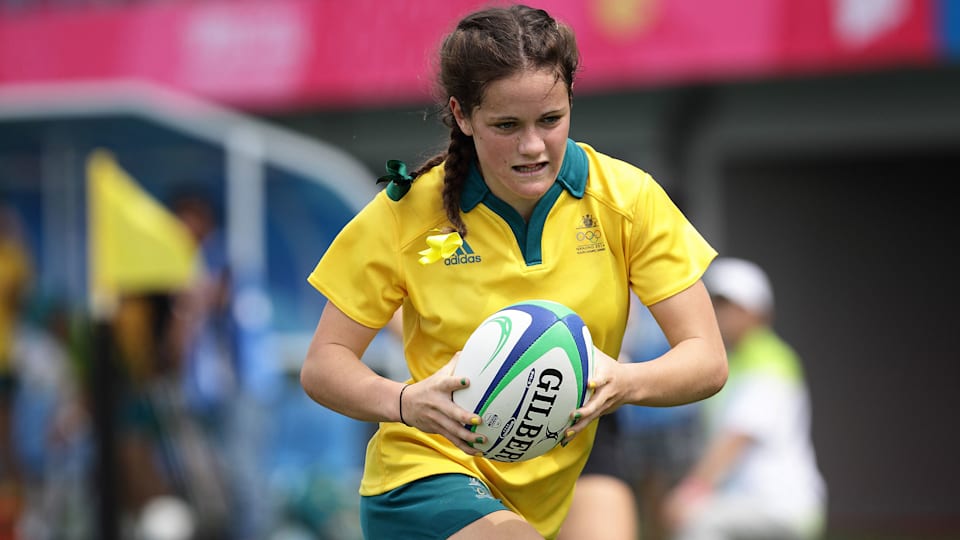Rugby bounces back at Rio 2016

Four times on the Olympic programme between 1900 and 1924, rugby makes its return at Rio 2016 in the seven format, with 12 nations set to go for gold in both the men’s and women’s competitions.
Pierre de Coubertin, the father of the modern Olympic Games, was a firm proponent of the sport of rugby and refereed the first French championship final in 1892. The sport appeared at Paris 1900 in its 15-team form, with a three-team tournament involving France, Great Britain and Germany. The host nation won their two games to claim rugby’s first gold medal.
Though the sport did not feature at St Louis 1904, it returned at London 1908, this time with only two teams and a solitary match, between Great Britain and an Australasia team made up of players from Australia and New Zealand, who combined to win 32-3. Antwerp 1920 saw another two-team competition, with USA beating France 8-0 to take the gold.
Those two nations reappeared at Paris 1924, along with Romania, the French and the Americans both beating the eastern Europeans before meeting in front of more than 20,000 spectators at the Stade de Colombes, where the USA emerged 17-3 winners, with their skipper Colby Slater winning a second Olympic gold.
Rugby then disappeared from the Olympic programme and it was not until the 121st IOC Session in Copenhagen on 9 October 2009 that it was voted back on, in time for Rio 2016, where it will return in the sevens format.
Rugby sevens is a perfect fit for the Olympics, offering a shortened, dynamic format (played on a standard rugby union pitch, matches are seven minutes each way in the group phases and ten minutes each way in the finals) that allows more games to be played in a shorter timeframe and more teams to take part, with 12 each contesting the inaugural women’s tournament and the fifth men’s competition.
An all-action game
There are three forwards in a rugby sevens team (two props and a hooker) and four backs (a scrum half, fly half, centre and wing). The space created by the reduced number of players makes for a faster-moving game than 15-a-side rugby and allows more tries to be scored.
Rugby sevens also requires more stamina and explosiveness on the part of the players, with body size not an especially important factor. Both conversions and penalties must be taken as a drop kick and not as a place kick, with the ball being dropped from the hand and struck on the half-volley.
Taking place in the first week of the Games, the two rugby sevens competitions at Rio 2016 will be held over six days (three for each tournament) at the Deodoro Stadium. Teams will play twice a day, with their first game taking place between 11:00 and 14:00 and the second between 16:00 and 19:00.
The teams will be drawn into three pools of four in the first round, with three points being awarded for a win, two for a draw and one for a defeat. The top two teams in each group will qualify for the quarter-finals along with the two best third-placed sides, and the eight qualifiers will be ranked from one to eight on the basis of their performance in the pool phase. The women’s final will take place on 8 August and the men’s three days later.
Among the stars of world rugby who will be competing in Rio is New Zealand’s Sonny Bill Williams, a two-time world champion with the All Blacks in 2011 and 2015 and who started playing for the country’s sevens team at the start of this year. Discussing what the Games mean to him, he said: “Going back in time, the best sportsmen ever have been Olympians – [Usain] Bolt, [Muhammad] Ali. It's just an awesome opportunity.”
